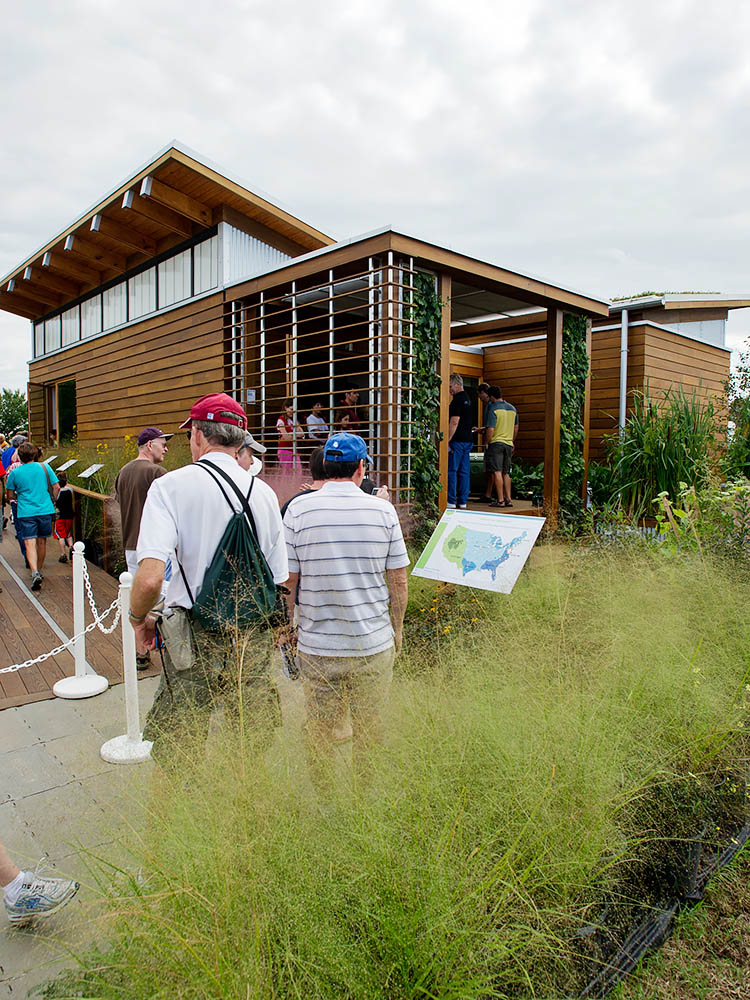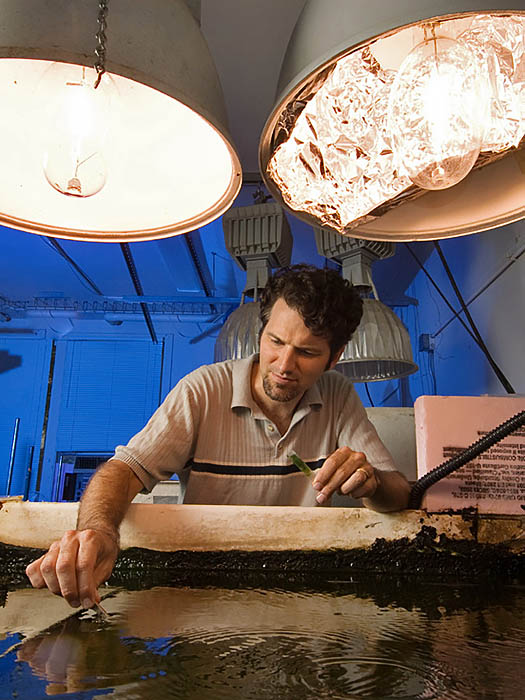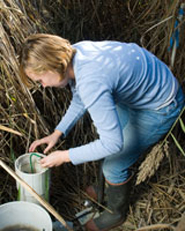Graduate Specializations
The Department of Environmental Science and Technology (ENST) offers a graduate program leading to the Master of Science and Doctor of Philosophy degrees. ENST students can choose to work within one of four specializations:
Soil and Watershed Sciences
The specialization in Soil and Watershed Sciences graduate program prepares students to address challenging environmental issues that involve the soil resource at field, landscape and watershed scales.
Soils are the most complex and ecologically significant biogeochemical systems on Earth. Soil processes and the soil resource are critical to all terrestrial ecosystems from prairies to the Alaskan tundra, to wetlands, to our cities, to forests to biofuel farms. Soil Science is at the center of the study of what the National Science Foundation terms the Critical Zone - the confluence of atmosphere, lithosphere, hydrosphere and biosphere near the surface of the Earth.
For more information, contact the Graduate Studies Coordinator

Natalie Lounsbury, ENST graduate student, investigating how cover crops can facilitate notill planting of early spring vegetables. Her future plans are to “combine experience and training in environmental science, farming and social science to develop agricultural practices that benefit farmers, consumers and the environment."
Ecological Technology Design
The specialization in Ecological Technology Design prepares students to integrate natural systems with the built environment to solve environmental problems while achieving economic, ecological and social sustainability. The science and application of using natural systems, processes and organisms to address environmental issues has evolved during the last few decades to a mature level whereby there are strong employment opportunities for graduates that are educated jointly in ecology and technology.
Ecological Technology Design Faculty
For more information, contact the Graduate Studies Coordinator

A team of 12 talented students from ENST designed a green wall for a solar-powered house, named Watershed, the University of Maryland’s entry into the U.S. Department of Energy’s Solar Decathlon. Watershed embraced an ecosystem model and drew inspiration from natural systems, such as the Chesapeake Bay Watershed.
Wetland Science
The specialization in Wetland Science addresses the keen awareness among the Environmental community that wetlands represent a critical and understudied component of many larger ecosystems. Hydrophytic vegetation, hydric soils and wetland hydrology all contribute to make wetlands the significant and highly complex ecosystems that they are.
In addition to the more obvious recreational and aesthetic contributions of wetlands, they provide fish and wildlife habitat, protect and enhance water quality through biogeochemical processes, increase flood protection through flood water storage mechanisms, and afford protection against shoreline erosion. Wetlands have rapidly gained public attention over the last two decades as they have been brought into the limelight by state and federal regulations and through the attention given such large scale environmental issues as hurricane Katrina.
For more information, contact the Graduate Studies Coordinator

ENST graduate student, David Blersch, designs cutting-edge computer system as wastewater treatment method.
Ecosystem Health & Natural Resource Management
The specialization in Ecosystem Health and Natural Resource Management (EHNRM) examines the complex interactions between ecosystem functioning, ecological health, and sustainability from a primarily ecological context.
This program recognizes the shared need within Environmental Science and Human Health communities for an improved understanding of how environmental factors and ecosystem functions affect ecological communities. Integrity of these communities is critical to the continued availability of natural resources and ecosystem services on which we depend. Comprehension of how human activities affect ecosystem functioning allows development of effective “knowledge-based” policy and management tools to mitigate environmental decline and promote sustainable growth and development.
Ecosystem Health & Natural Resource Management Faculty
For more information, contact the Graduate Studies Coordinator

ENST graduate student, Jennifer Brundage, examines the effectiveness of grazing by goats to control common reed, an invasive wetland grass known as Phragmites australis.
Faculty
The ENST graduate program is guided by strong faculty recognized for their research and teaching excellence and committed to providing a high quality experience of education and mentoring for our graduate students.
Research
The ENST faculty are committed to the principle that graduate education at both the M.S. and Ph.D. level requires a commitment to research. Graduate students, therefore, will pursue a research project under the tutelage of their advisor and advisory committee. Prospective students are encouraged to identify one or more potential faculty advisors with whom they share areas of research interest.
Collaborations
The University of Maryland is located between Beltsville, MD and Washington, D.C., and is thus located near the headquarters and principal laboratories of several federal agencies including the U.S.D.A. at Beltsville, the U.S. Geological Survey, the National Academy of Sciences, National Aeronautic and Space Administration, National Institutes of Health, Department of Energy, the Smithsonian Institution, the National Park Service, as well as others. Scientists from a number of these agencies have cooperated with Departmental faculty on various projects, and scientists from some of these agencies hold adjunct appointments in the Department, have taught special courses at the University, and participate on graduate student committees. Cooperation with these agencies provides opportunities for consultation with leading scientists and financial support of graduate studies. Some students obtain part-time work at these agencies which provides a valuable addition to their training.